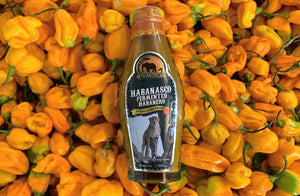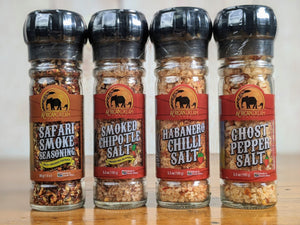Preservative Free Food: The Benefits
Mar 01, 2021
You could throw a McDonalds cheeseburger into a time capsule and 20 years later it would look pretty much the same as the day it was served up. Don’t believe us? It’s literally been done. If that doesn’t get your skin crawling, it should.
The culprit behind this freakish fact? Artificial preservatives.
Why are preservatives even a thing?
Food preservation has been around for more than ten thousand years, but artificial preservatives didn’t become commonplace in our diets until the 20th century. The modern era ushered in a global population boom, and more people means more mouths to feed.

The result? Food manufacturers ramped up production, turning to new practices in order to meet demand and feed the masses. One of those innovations included the increased use of artificial preservatives, which extended shelf life, making it cheaper and easier to mass produce.
Sounds like a win-win situation, right? Not so much.
These days, a lot of canned goods and condiments have expiration dates that stretch for longer than it takes a college student to finish a degree. Sure, these items might technically be within their “best-by” period. But are they really good for you when they’re jam-packed with synthetic ingredients and chemical preservatives?
Why artificial preservative suck

Artificial preservatives work by preventing the growth of microorganisms that cause food to rot. But microorganisms aren’t just a threat to your cheeseburger’s lifespan—in some cases, they’re essential to your wellbeing. In fact, they play an essential role in your gastrointestinal system and wholly determine your gut health.
Sure, artificial preservatives like sulphites, sodium benzoate and nitrates are going to thoroughly destroy any microorganisms that might try to make a meal of your food. They’ll extend that food’s shelf life, but they’ll also devastate the delicate, essential microbes that wholly determine our gastrointestinal health.
Consuming fermented foods can help to restore your gut flora and bring balance back to your gastrointestinal system. But if you’re regularly chowing down on processed snacks and processed foods with artificial preservatives, those good little microbes just don’t stand a chance.
Aside from their disastrous impact on your gut health, artificial preservatives may also increase your risk of cancer, deteriorate heart health and impact childhood development.
How to find Preservative Free Foods
When you consider the health risks of consuming artificial preservatives,eliminating them from your diet should be a total no-brainer. The good news? There are plenty of natural food alternatives, you just have to know where to look.

Natural preservation processes have been around forever—think about your grandma’s pickle jars or the fermented foods used in many traditional Asian cuisines. There are plenty of natural preservatives out there: oil, sugar, salt and vinegar just to name a few. You just have to find the food products that use them.
When shopping for preservative-free foods, keep an eye on the label and steer clear of anything detailing ingredients such as nitrates, benzoates, sorbate sulfite and chelating agents. A good rule of thumb? If you don’t know what it is and you can’t pronounce it, it’s worth leaving behind.
Instead, keep your eyes peeled for food products like ADF’s small-batch hot sauces and spices, which have a minimum shelf life of 12 months and keep fresh using the properties of all-natural, flavor-enriching ingredients like vinegar and lemon.




